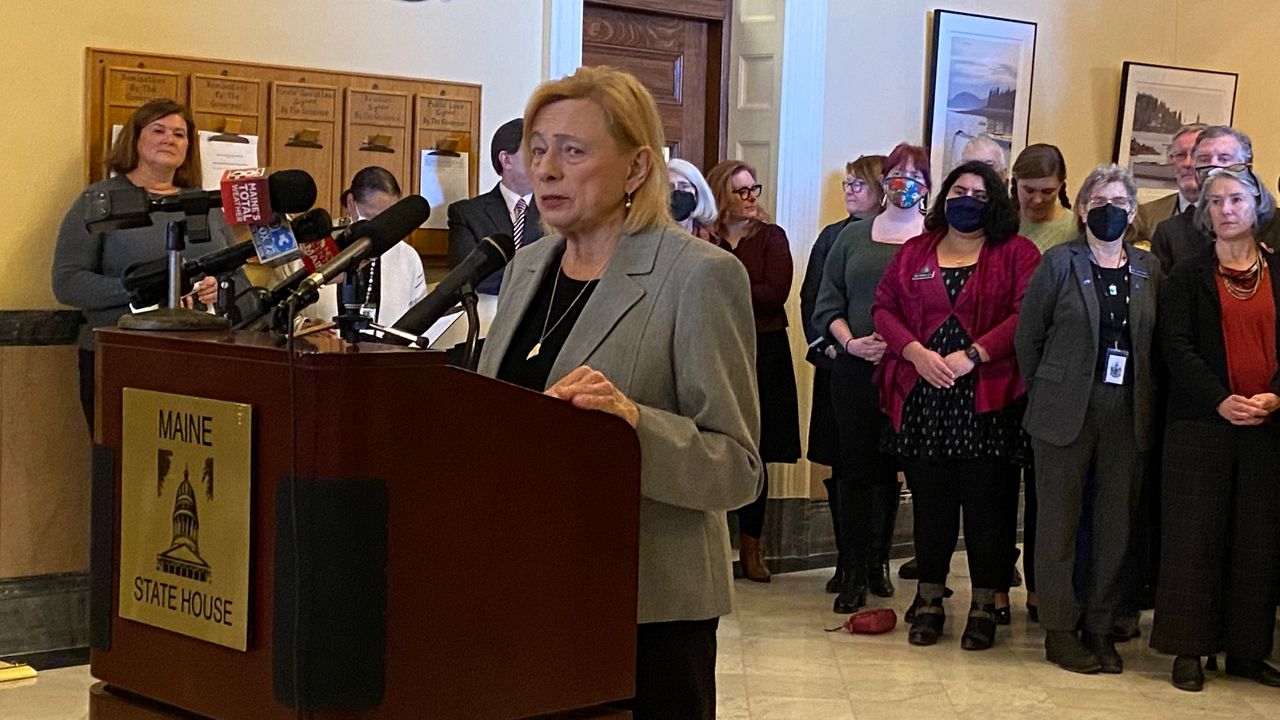Abortion supporters will push legislation across the country, including in Maine, to preserve and expand access to women’s reproductive health care.
The effort comes six months after the Supreme Court struck down the federal constitutional right to an abortion, turning the issue over to the states.
“Of course, now we have an even worse patchwork of laws around the country regarding abortion and more confusing as well,” Sawyeh Esmaili, senior counsel with the National Women’s Law Center, said Friday during a virtual discussion on efforts to expand abortion access.
Maine Family Planning, along with other reproductive rights organizations, sponsored the discussion that explored the idea that even the landmark 1973 Roe v. Wade decision to guarantee abortion access “was never enough.”
In June 2022, the court overturned that decision, which gave states the power to institute restrictions and bans.
Most abortions are banned in 13 states. In 27 states, including Maine, the procedure is either legal or legal but limited, according to a New York Times abortion tracker.
In the other 10, courts have blocked bans or there are strict limits on when an abortion can be performed, according to the Times.
Now, abortion access advocates are fighting back.
Across the country, legislation is being introduced in Illinois, Minnesota, New Jersey, Georgia, New York, Texas and Maine, said Winnie Ye, senior state strategies manager at All Above All, a group that fights for abortion justice.
“In every political environment we are putting forth our vision for abortion justice,” Ye said. “We know bills we introduce this year might not become law this year, but we are planting those seeds.”
Even if it takes five years in some states, they will continue to fight, she said.
In Maine, Gov. Janet Mills announced last week that she is putting forward a bill to allow women to get an abortion past the point of fetal viability with a doctor’s permission.
That would be a change to current state law, which guarantees access to abortion up to viability, which is generally considered to be 24 weeks.
Ye described it as “expanding abortion care ensuring that people can make those decisions that are best for them with a qualified health provider and without interference from politicians.”
The Roman Catholic Diocese of Portland and Christian Civic League of Maine plan to fight the effort.
“It’s not a subtle change,” said Michael McClellan, policy director for the civic league. ”It’s making us the head of the class for abortion.”
The civic league is one of a handful of groups meeting regularly to plan their opposition and they are reaching out to legislators to bolster their effort.
“We are telling people this is so above and beyond,” he said.
Mills said last week she put the bill forward after hearing the story of a Yarmouth woman who had to travel to Colorado to get an abortion at 32 weeks because of a rare fetal condition.
“While Maine’s abortion laws are strong, they nonetheless still prevented Dana and other women in a similar position from being able to obtain abortion care later in pregnancy in Maine,” Mills said. “The decision to have an abortion should be made by a woman in consultation with her medical provider and no one else.”



